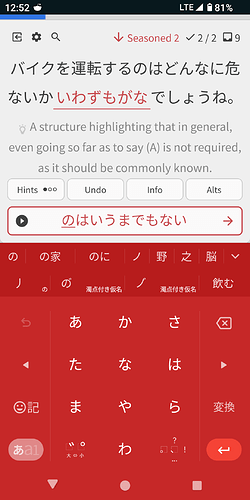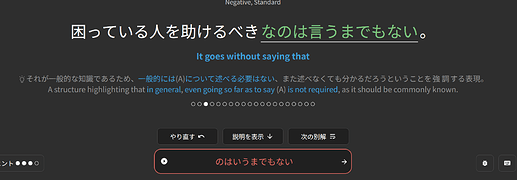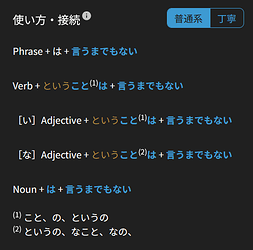it goes without saying (that)
(it is) needless to say
I don’t need to remind you
Structure
- Verb + (という) + こと / の + は + 言うまでもない
- い-Adj + (という) + こと / の + は + 言うまでもない
- な-Adj + という + こと / の + は + 言うまでもない
- な-Adj + な + こと / の + は + 言うまでもない
- Noun + という + こと / の + は + 言うまでもない
- Noun + (なの) + は + 言うまでもない
- Phrase + (は) + 言うまでもない
[Used to express something obvious, not surprising. Often used to remind someone or confirm something that should already be known or to add emphasis]







